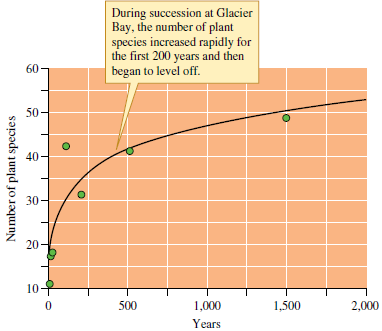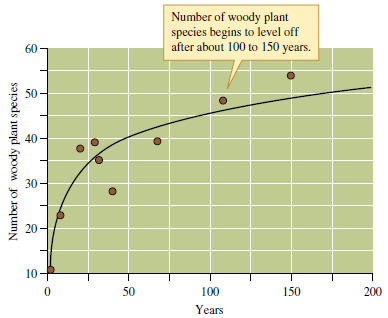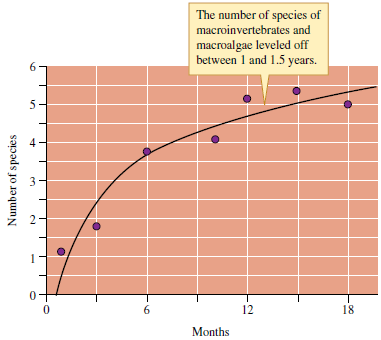
Ecology 6th Edition by Manuel Molles
Edition 6ISBN: 978-0073532493
Ecology 6th Edition by Manuel Molles
Edition 6ISBN: 978-0073532493 Exercise 17
The successional studies in Sycamore Creek produced patterns of variation in diversity that differed significantly from those observed during primary succession at Glacier Bay (see fig. 20.2), old field succession on the Piedmont Plateau (see fig. 20.4), or algal and barnacle succession in the intertidal zone (see fig. 20.7). The main difference was that Fisher and colleagues (1982) observed initial increases in species diversity followed by declines. In contrast, studies of forest and intertidal succession showed increases in diversity but no obvious declines. What may have been responsible for these different results How might have differences in the longevity of species contributed to the different patterns observed by researchers (Hint: Think about what we might observe in the other communities if they were studied for a longer period of time.)
Figure 20.2 Change in plant species richness during primary succession at Glacier Bay, Alaska (data from Reiners, Worley, and Lawrence 1971).

Figure 20.4 Change in woody plant species richness during secondary forest succession in eastern North America (data from Oosting 1942)

Figure 20.7 Succession in number of macroinvertebrate and macroalgae species on intertidal boulders (data from Sousa 1979a).

Figure 20.2 Change in plant species richness during primary succession at Glacier Bay, Alaska (data from Reiners, Worley, and Lawrence 1971).

Figure 20.4 Change in woody plant species richness during secondary forest succession in eastern North America (data from Oosting 1942)

Figure 20.7 Succession in number of macroinvertebrate and macroalgae species on intertidal boulders (data from Sousa 1979a).

Explanation
The different successions, which have be...
Ecology 6th Edition by Manuel Molles
Why don’t you like this exercise?
Other Minimum 8 character and maximum 255 character
Character 255


